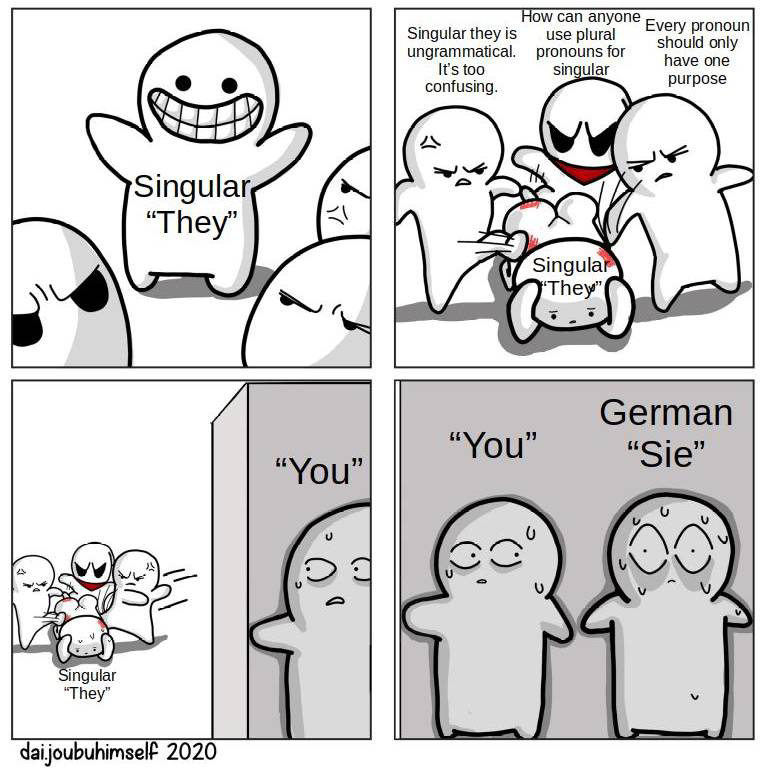this post was submitted on 24 Jul 2023
667 points (100.0% liked)
196
16801 readers
2421 users here now
Be sure to follow the rule before you head out.
Rule: You must post before you leave.
founded 2 years ago
MODERATORS
you are viewing a single comment's thread
view the rest of the comments
view the rest of the comments

So it's not about politeness, it's about not being rude?
Edit: rewrote everything because it’s actually easier than I was explaining it:
It’s not about being polite or rude, it’s an indicator of your relationship with the person/s you’re addressing.
It’s not like you can choose how you say something to set a certain tone. „Would you pass me the butter, please“ doesn’t get more polite using „Sie“.
Who you’re talking to defines what to use.
When you are introduced, it’s easy: „Hey Bob“ -> informal -> „Du“; „Hello Mrs. Robinson“ -> formal -> „Sie“. Mixing them up just doesn’t happen, except for very small children who sometimes use the informal „Du“ with „Mrs Krabappel“.
It only gets complicated because it also is used when you do not know each other, like on the street, at a restaurant, etc.
Then it’s a judgment call what to use depending on the context. Either there’s some social clue (age, location, class, etc.), or whoever goes first sets the tone, but it’s still pretty much along the lines of „would I call her Kathryn or Cpt. Janeway“.